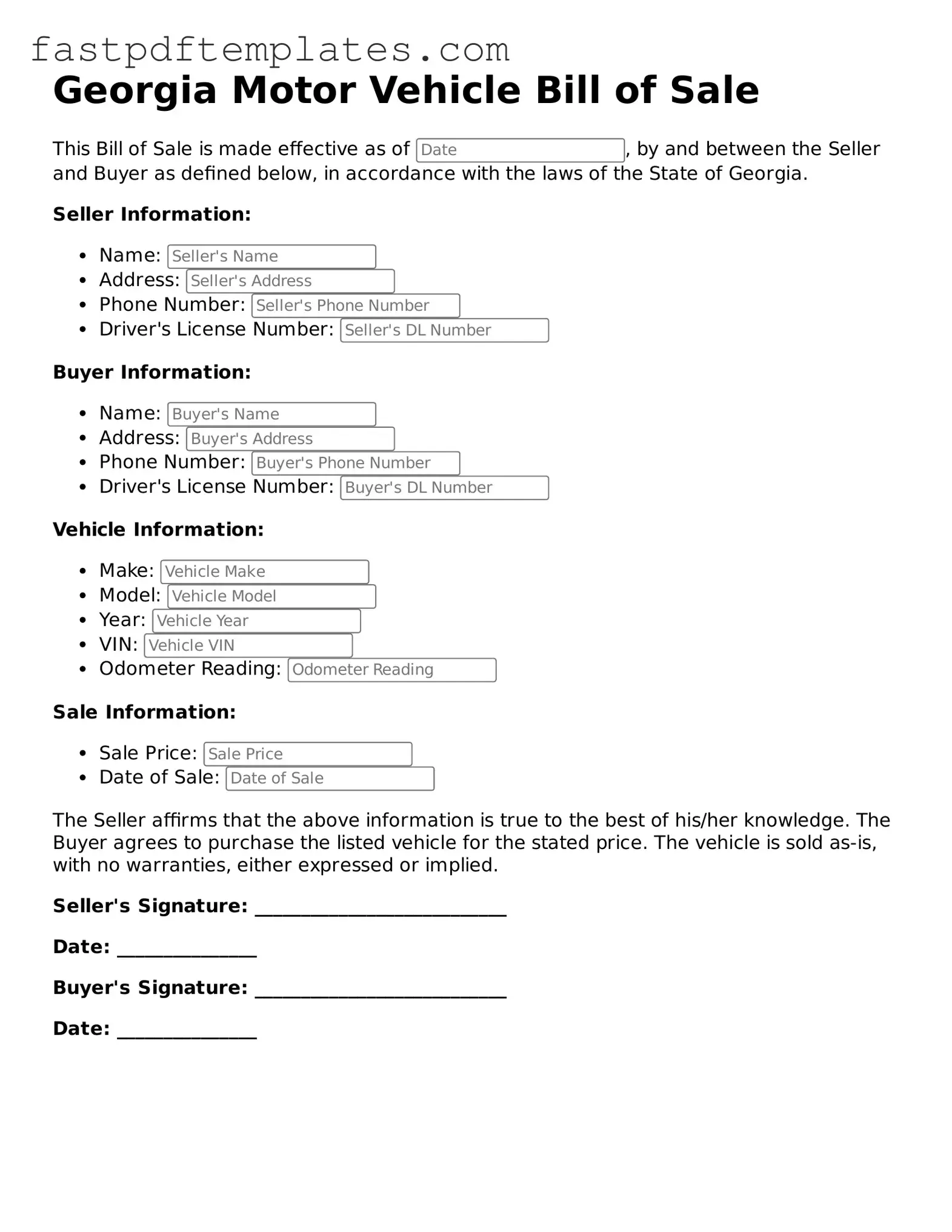The Georgia Motor Vehicle Bill of Sale form is similar to a standard Bill of Sale used for personal property transactions. Both documents serve as a legal record of the transfer of ownership from one party to another. A standard Bill of Sale typically includes details such as the names of the buyer and seller, a description of the item being sold, and the purchase price. Just like the Motor Vehicle Bill of Sale, it can be used to protect both parties by providing proof of the transaction, which can be useful in case of disputes or legal issues in the future.
Another document that shares similarities with the Georgia Motor Vehicle Bill of Sale is the Vehicle Title. The title serves as the official document that proves ownership of a vehicle. When a vehicle is sold, the seller must sign over the title to the buyer, similar to how a Bill of Sale formalizes the transaction. Both documents are crucial for the buyer to register the vehicle in their name and ensure that they have clear ownership, as well as for the seller to show that they have relinquished their rights to the vehicle.
The Lease Agreement also bears resemblance to the Motor Vehicle Bill of Sale in that both documents outline the terms of an agreement between two parties. While a Bill of Sale is used for outright purchases, a Lease Agreement details the terms under which one party can use another's property, often involving regular payments. Both documents protect the interests of the involved parties by clearly stating the conditions of the agreement, including responsibilities and rights, which helps prevent misunderstandings.
The Purchase Agreement is another document that closely resembles the Motor Vehicle Bill of Sale. This type of agreement is often used in real estate transactions but can apply to any sale of goods. It outlines the terms and conditions of the sale, including the price, payment method, and delivery details. Like the Motor Vehicle Bill of Sale, it serves as a binding contract that provides legal protection to both the buyer and the seller, ensuring that both parties adhere to the agreed-upon terms.
Lastly, the Power of Attorney can be compared to the Motor Vehicle Bill of Sale in terms of its legal significance. While a Bill of Sale transfers ownership, a Power of Attorney allows one person to act on behalf of another in legal matters, including the sale of a vehicle. This document can empower an agent to sign the Bill of Sale on behalf of the seller, making it essential in situations where the seller cannot be present. Both documents require careful consideration and must be executed correctly to ensure that the intentions of the parties are honored.

